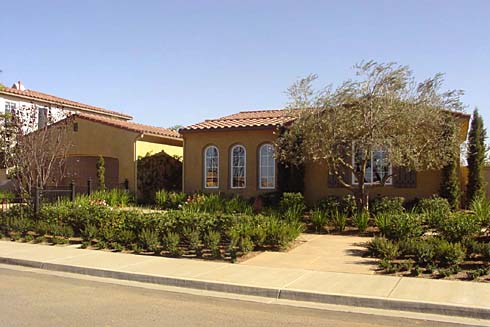BOMA
Understanding BOMA in Real Estate
In the world of commercial real estate, the Building Owners and Managers Association (BOMA) plays a significant role in establishing industry standards and best practices. Understanding BOMA and its impact on real estate is essential for property owners, managers, and tenants alike.
What is BOMA?
The Building Owners and Managers Association (BOMA) is an international organization that represents the interests of commercial real estate professionals. Founded in 1907, BOMA has been a driving force in shaping the standards and practices that govern the commercial real estate industry. BOMA's primary focus is on advocacy, professional development, and the establishment of industry benchmarks.
BOMA Standards and Guidelines
BOMA is renowned for developing and maintaining several crucial standards and guidelines that are widely adopted within the commercial real estate sector. Some of the most notable include:
1. BOMA Measurement Standards
BOMA has established measurement standards for determining the rentable square footage of commercial properties. The BOMA standards provide a uniform methodology for measuring a building's floor area, enabling consistency and comparability in lease agreements and property valuations.
2. BOMA Best Practices
BOMA actively promotes best practices in property management, sustainability, and energy efficiency. These best practices serve as a guide for property owners and managers to enhance the operational and environmental performance of their buildings.
3. BOMA Advocacy Efforts
3. BOMA Advocacy Efforts
BOMA engages in advocacy efforts at the local, state, and national levels to influence policies and regulations that impact the commercial real estate industry. By representing the interests of property owners and managers, BOMA works to shape legislation and regulations that affect property operations and investment.
BOMA's Impact on Real Estate Professionals
Understanding BOMA and its standards is crucial for real estate professionals due to the following reasons:
Industry Credibility:
Adhering to BOMA standards enhances the credibility and transparency of property measurements and management practices, fostering trust among stakeholders.
Market Consistency:
BOMA standards promote consistency in property measurements, facilitating fair comparisons and evaluations within the real estate market.
Professional Development:
BOMA provides educational resources and networking opportunities for real estate professionals, supporting their ongoing development and knowledge enhancement.
Conclusion
BOMA's influence on commercial real estate cannot be overstated. Its dedication to establishing industry standards, advocating for best practices, and fostering professional development has positioned it as a cornerstone of the sector. By understanding and aligning with BOMA standards, real estate professionals can contribute to a more transparent, efficient, and sustainable commercial real estate landscape. Whether through adherence to measurement standards or participation in advocacy initiatives, BOMA continues to shape the industry and elevate the standards of excellence within commercial real estate.
MORE REAL ESTATE TERMS
A, B, C, D, E, F, G, H, I, J, K, L, M, N, O, P, Q, R, S, T, U, V, W, X, Y, Z
Featured New Home

Featured Mortgage Brokers
- Mainstream Funding Network, Inc., mortgage broker in Williamsville, NY
5586 Main St.
Williamsville, NY 14221 - REVERSE MORTGAGE SOLUTIONS INC, NEWBURGH, NY
700 CORPORATE BLVD
NEWBURGH, NY 12550 - CARRINGTON MORTGAGE SERVICES LLC, SANTA ANA, CA
1610 E SAINT ANDREW PL STE B-1
SANTA ANA, CA 92705 - M AND T BANK, CHEEKTOWAGA, NY
80 HOLTZ DR STE 2
CHEEKTOWAGA, NY 14225 - PRIMELENDING A PLAINSCAPITAL COMPANY, NORTH SYRACUSE, NY
6702 BUCKLEY RD STE 140
NORTH SYRACUSE, NY 13212